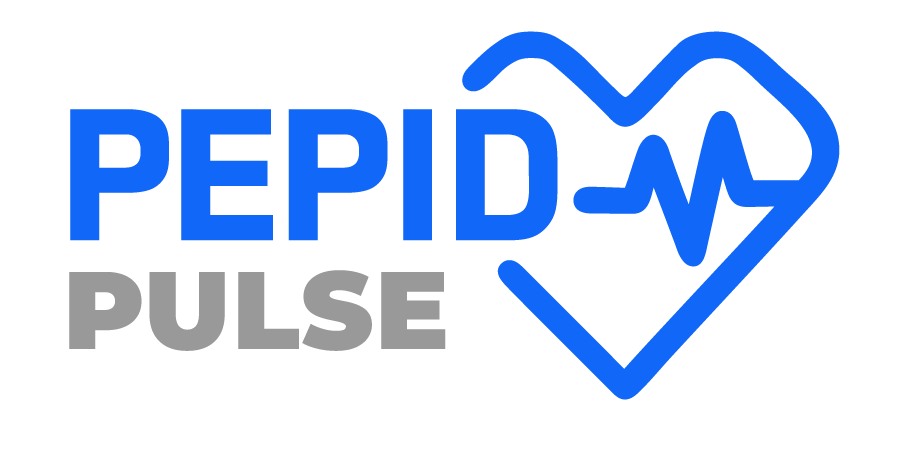The DNP role is not just about caring for individual patients; it’s about improving how care is delivered, from primary clinics to hospital systems.Nursing has always been at the heart of patient care. Picture a hospital without nurses: no one checks on your pain, brings you water, delivers medication, or even stays by your side when things feel uncertain. Now imagine your only human interaction is a brief visit from a physician, in and out with a diagnosis and a prescription. No comfort. No connection. That’s where nurses step in. They don’t just assist—they advocate, educate, listen, and support. The role of Nursing has evolved far beyond traditional bedside care. Today’s nurses play a central role in transforming healthcare delivery. One of the most advanced and impactful roles within this profession is the Doctor of Nursing Practice (DNP). The DNP role is not just about caring for individual patients; it’s about improving how care is delivered, from primary clinics to hospital systems. These highly trained nurses blend clinical expertise with leadership, policy, and innovation to address some of healthcare’s biggest challenges. In this article, we’ll explore what a DNP is, how it differs from other nursing roles, and why it’s becoming such a powerful force in modern medicine.
What Is a DNP?
The Doctor of Nursing Practice is a terminal degree focused on clinical practice rather than academic research. While a PhD in nursing prepares professionals to generate new knowledge, the DNP prepares nurses to apply that knowledge in real-world settings.
This degree emphasizes leadership in areas such as healthcare policy, quality improvement, population health, and system-wide decision-making. DNPs bring a deep understanding of evidence-based practice and use it to improve outcomes across the continuum of care—from individual patient visits to organizational change initiatives.
DNP vs NP: What’s the Difference?
Most Nurse Practitioners (NPs) earn a Master of Science in Nursing (MSN), which qualifies them to diagnose, treat, and prescribe. However, the scope of an NP is typically focused on direct, one-on-one patient care.
A DNP builds on this foundation by integrating training in clinical leadership, systems thinking, and public health. DNPs are often positioned to oversee programs, lead interdisciplinary teams, or influence care models across an entire organization. In this sense, they bridge the gap between patient care and executive leadership.
The DNP credential reflects not only clinical capability but also the pursuit of a broader vision. A future where nurses are active agents of change in healthcare delivery.
DNP vs. Doctor: How Close Is It?
In many primary care settings, DNPs function similarly to physicians. They can diagnose illnesses, prescribe medications, order lab tests or imaging, and manage chronic diseases. In full-practice authority states such as Illinois and Arizona, DNPs can provide this care independently, without physician supervision. They function much like a primary care doctor in general practice.
However, the scope of practice laws varies. In Florida, for example, DNPs still face certain restrictions in outpatient clinical settings and may require physician oversight, particularly in private practices. These legal distinctions can affect “how and where” a DNP is allowed to operate.
It’s important to note that DNPs are not medical doctors. They do not perform surgery or treat rare, complex conditions that require a specialists care. Their training is grounded in nursing science and emphasizes holistic, patient-centered care.
Regardless, in communities facing physician shortages or long wait times, DNPs play a vital role in improving access to care. Their ability to independently manage routine and chronic conditions, especially in underserved or rural areas, makes them a valuable asset in today’s evolving healthcare system.
Real-World Roles: What Can a DNP Actually Do?
DNPs are found across a wide range of clinical and leadership roles. They may work in:
- Primary care clinics, managing chronic conditions and promoting wellness
- Behavioral health, diagnosing mental health disorders, and providing therapy
- Hospital systems, leading quality improvement projects, or infection control initiatives
- Academia, teaching, and mentoring advanced practice nursing students
- Policy, helping shape healthcare reform or advocating for public health initiatives
Some DNPs open their own clinics where permitted by law. Others may serve as Chief Nursing Officers, directing clinical strategy across entire organizations. The versatility of this role makes it one of the most promising and flexible career paths in healthcare.
Opening Your Own Clinic as a DNP
In full-practice states, DNPs have the authority to open and operate independent healthcare clinics. These practices often focus on family medicine, women’s health, mental health, or chronic disease management.
Owning a clinic allows DNPs to serve their communities with greater autonomy and provide care that reflects nursing values: access, compassion, and continuity. Their training includes coursework in business operations, billing, and practice management—skills that help them balance the clinical and administrative sides of running a practice.
In states with a restricted scope of practice, DNPs may still open clinics in collaboration with a physician. Regardless of the model, the opportunity to build community-focused care settings is a significant benefit of the DNP route.
Leadership Opportunities: Where DNPs Stand Out
Leadership is a defining feature of the DNP role. These professionals are equipped not just to treat illness, but to improve the systems that deliver care.
DNPs may lead clinical departments, design new care models, or oversee staff development. Some take on national roles in advocacy and policy, while others work in health tech, research translation, or public health programming.
This leadership capacity is what sets a DNP apart. While MSN-prepared NPs focus on clinical care, DNPs shape how care is delivered, evaluated, and improved.
Pros and Cons of Pursuing a DNP
Earning a Doctor of Nursing Practice offers a number of advantages for nurses looking to expand their scope of practice and leadership potential. DNPs often enjoy higher earning potential and access to a broader range of career opportunities, including independent practice, administrative leadership, and academic teaching roles. The degree provides strong preparation for opening a clinic, managing complex care programs, or influencing healthcare policy on a systemic level. As the healthcare landscape evolves, the DNP is increasingly viewed as the preferred, or even required, credential for many advanced practice positions.
That said, pursuing a DNP requires a significant investment of time and resources. Programs can take anywhere from three to six years to complete, depending on whether a nurse enters with a BSN or MSN. Tuition costs can be high, and not all employers currently require the DNP for advanced practice roles. Balancing graduate studies with full-time work and personal responsibilities can also pose challenges. Still, for many nurses, the long-term benefits, greater independence, expanded clinical authority, and the ability to lead change are all what make the DNP a worthwhile step in their professional journey.
Is the DNP Right for You?
If you’re a nurse who wants to go beyond bedside care and influence healthcare at a systems level, the DNP could be an ideal path. It’s especially valuable if you aspire to open your own clinic, take on executive leadership roles, or educate future nurses.
Before pursuing the DNP, it’s important to understand your state’s laws, your career goals, and your timeline. But for many nurses, the DNP offers the perfect blend of clinical care, leadership, and professional advancement, while also making a real impact on your community.
It’s a credential that represents more than just a degree. It reflects a commitment to patient-centered innovation, evidence-based practice, and the belief that nurses should lead at every level of healthcare.
References
American Association of Colleges of Nursing. (2024). DNP fact sheet. https://www.aacnnursing.org/news-data/fact-sheets/dnp-fact-sheet
American Association of Nurse Practitioners. (2024). State practice environment. https://www.aanp.org/advocacy/state/state-practice-environment
Chamberlain University. (n.d.). DNP vs. NP: What’s the difference? https://www.chamberlain.edu/blog/dnp-vs-np-whats-the-difference
Franklin University. (n.d.). Is a Doctor of Nursing Practice (DNP) worth it? https://www.franklin.edu/blog/is-a-doctor-of-nursing-practice-dnp-worth-it
NP Hire. (2023). Should you pursue a DNP? Pros and cons. https://www.nphire.com/blog/should-you-pursue-a-dnp-pros-and-cons
Nurse Practitioner Online. (n.d.). DNP: Is it worth it? https://www.nursepractitioneronline.com/articles/dnp-is-it-worth-it/
Spring Arbor University. (n.d.). The DNP: The terminal degree for nurses. https://online.springarbor.edu/news/dnp
University of St. Augustine for Health Sciences. (2023). Nurse practitioner vs. doctor: What’s the difference? https://www.usa.edu/blog/nurse-practitioner-vs-doctor/





